Read STORM_SAFE's latest newsletter here!
STORM_SAFE steering group sets course for secure digital infrastructure
As part of the European Interreg North Sea project the lead partner organised the first in-person STORM_SAFE steering group meeting which took place in the Netherlands on 5 MArch 2025. STORM_SAFE Steering group members gathered at the Ramspol storm surge barrier during the meeting to discuss the project process and to strengthen the digital resilience of 'wet' critical infrastructure along the North Sea.
The meeting focused on three main themes: project progress, improving the reliability of software in 'wet' mission-critical control systems; strengthening cross-border cooperation; and influencing EU-level policy to achieve sustainable digital security. Infrastructure reliability depends not only on technology, but also on cooperation and smart regulation. Therefore, STORM_SAFE actively seeks dialogue with European policymakers. Through practical pilots, concrete case studies and well-founded position papers, the project is contributing to the development of future-proof EU policy in the field of digital security.
The commitment of the steering group members to the goals and mission of the project was reaffirmed, and their contributions will be essential for the successful progress of the project. In the meantime, software solutions will undergo further testing and scaling up in practice, with the aim of achieving a more secure and resilient Europe.
Stay informed! Follow the STORM_SAFE programme on LinkedIn.
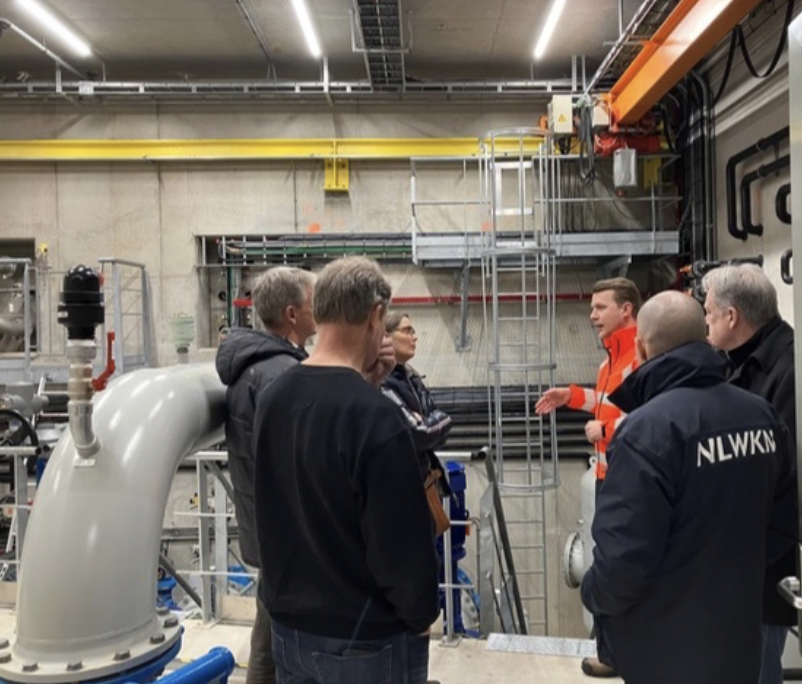
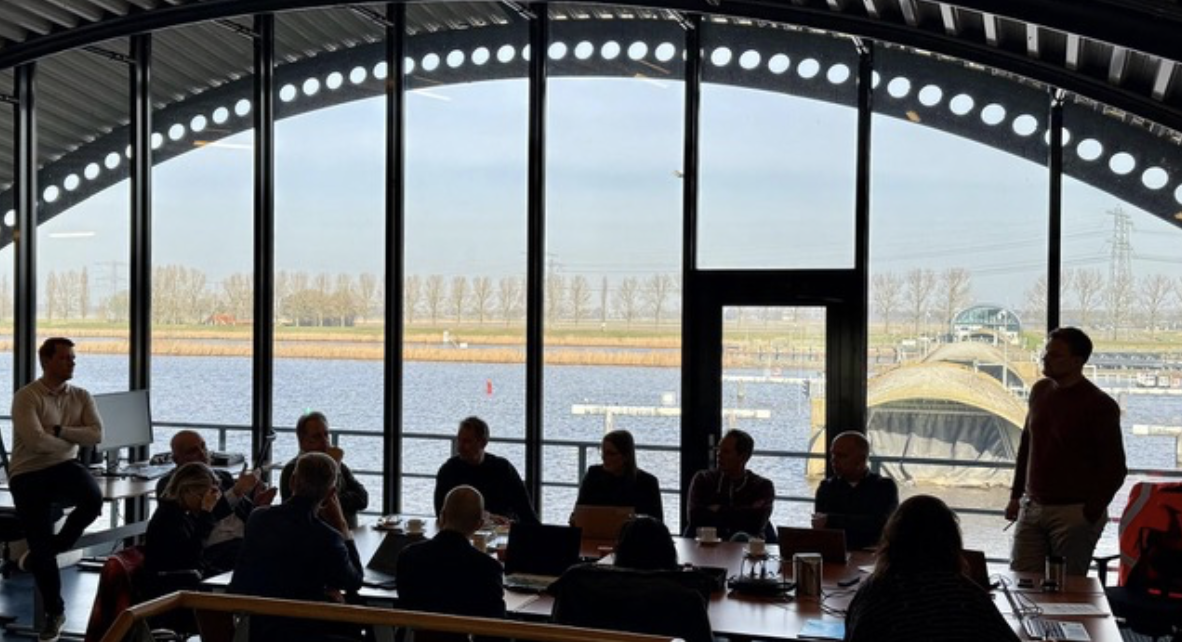
Dutch-Danish collaboration in securing coastal infrastructure
As part of the EU-funded STORM_SAFE project, the Danish Coastal Authority (DCA) visited its Dutch partner in the Netherlands. During the visit, held on 26 and 27 March 2025, the DCA engaged with the BIK programme and visited the Haringvliet sluices.
The two-day programme began in Capelle aan den IJssel at the Hollandse IJssel storm surge barrier, the first project of the Delta Works. Highlights included a live demonstration of a digital twin of a barrier, showcasing how virtual replicas can support real-time monitoring, predictive analysis, and data-informed decision-making in complex infrastructure systems. Participants also benefited from the insights of the Software Reliability Expert Team. They presented their work on developing new operational and control systems, a key area of interest for the DCA as it seeks to modernise its coastal defences.
The visit then moved on to the Haringvliet sluices, where ecological innovations and daily operational strategies were explored. The DCA expressed a particular interest in the environmental improvements implemented behind the sluice, including automated measurements and smart monitoring systems. These efforts align with the growing European interest in sustainable and resilient water management.
Additionally, discussions covered operational maintenance strategies, including structured inspection plans and asset management systems, an area in which both countries recognise valuable opportunities for mutual learning.
This exchange, under the STORM_SAFE umbrella, demonstrates the effectiveness of cross-border collaboration in tackling shared challenges. By combining technical expertise and innovative approaches, European partners are working together to build more resilient and secure coastal infrastructure for the future.
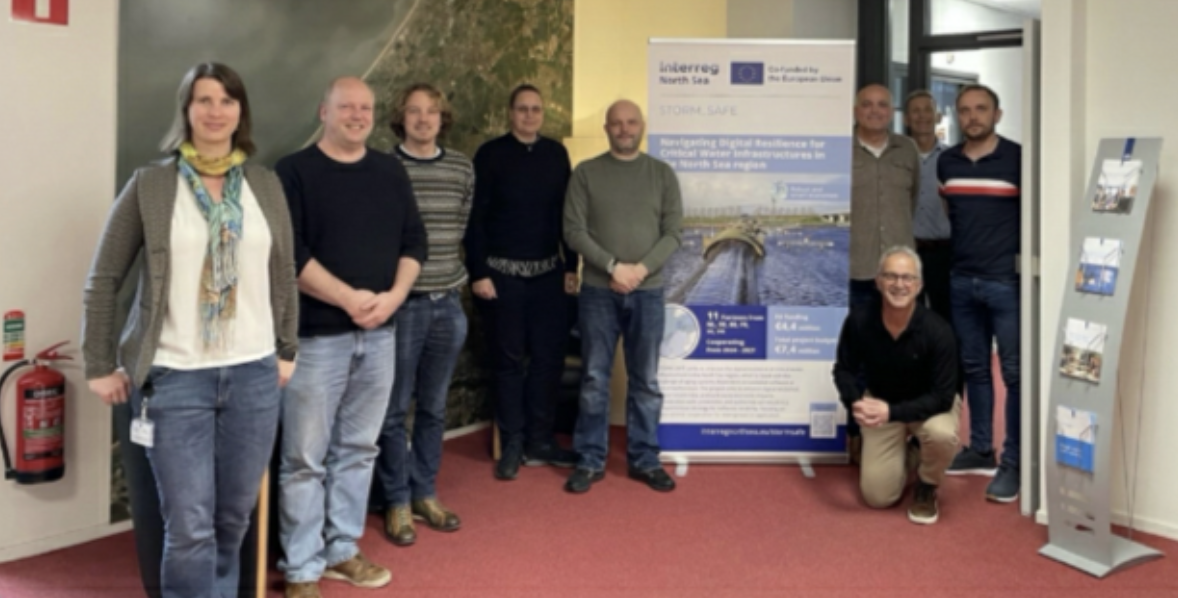
International collaboration strengthens future-proof water safety
As part of the Interreg North Sea STORM_SAFE project, Rijkswaterstaat and the UK’s Environment Agency, which is responsible for the Thames Barrier, came together for a two-day knowledge exchange event in April 2025. The event focused on improving critical water infrastructure, paying particular attention to innovative methods such as digital twins and formal verification techniques.
Participants explored how these technologies could contribute to the development of more reliable and sustainable control system for storm surge barrier, taking the Hartel storm surge barrier and the Thames Barrier as examples. A case study demonstrated how new validation strategies can address technical challenges while developing control system and improve the resilience of existing systems.
This event was an important milestone in the international cooperation on water safety at a time when ageing infrastructure and climate change pose an increasing risk.
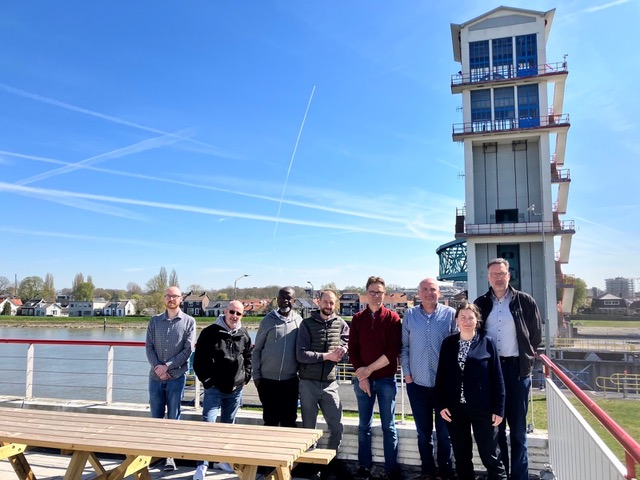
Rijkswaterstaat and VNF strengthen cooperation
Brussels, 9 April 2025 – During a strategic meeting at the Rijkswaterstaat Bureau Brussels office, representatives from Rijkswaterstaat and Voies Navigables de France (VNF) took important steps to enhance their collaboration. The session brought together Eric Boessenkool (Head of European Affairs), Natalie Oonk (Portfolio Manager Digitalisation), Yigal Levin (program manager BIK and co project manager STORM_SAFE), and Perrine Lavelle (Head of European Affairs, VNF).
The main focus was on aligning and refining the strategic objectives of the STORM_SAFE project, which aims to create climate-resilient and smart inland waterways. The meeting also offered a fitting opportunity to present the 10-year anniversary book of the Rijkswaterstaat Bureau Brussels to Perrine Lavelle.
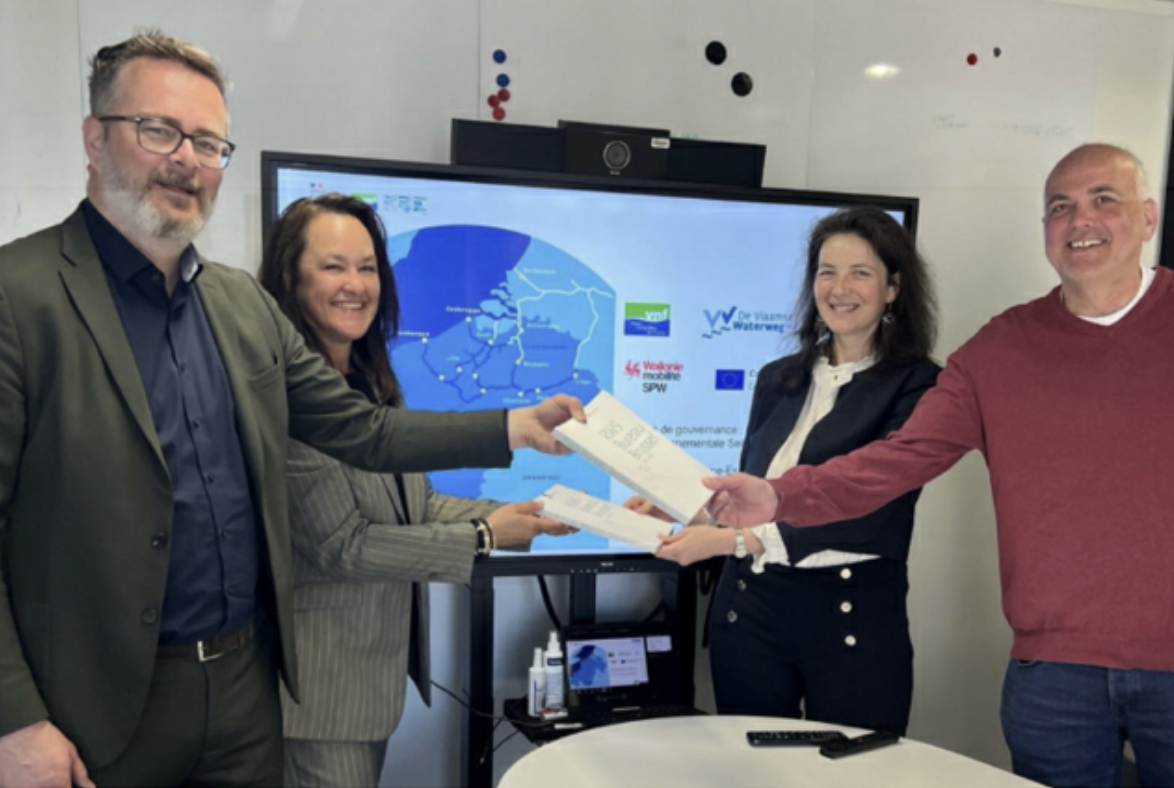
Masterclass: error-free software by Professor M. Mikučionis
How do you design software that functions flawlessly, even under extreme conditions? In this inspiring masterclass, organised by the expert team Software Reliability in cooperation with the EU programme STORM_SAFE, Professor Marius Mikučionis from Aalborg University in Denmark provided an in-depth insight into two state-of-the-art techniques.
Formal methods in the V-Model
Mikučionis began with a clear talk on using formal methods alongside proven system engineering practices (the V-Model), a widely used roadmap for software development. By integrating formal specifications and verifications into different phases of the development process, errors can be identified and rectified at an early stage. This results in better, more reliable software.
UPPAAL: checking software on time
The second part of the masterclass focused on the UPPAAL tool. This tool helps developers check systems for errors where time is of the essence. Another advantage of the tool is that it improves the interaction between software and civil engineers by visualising the design. This, in turn, leads to higher software quality, shorter development times and lower costs. Mikučionis demonstrated how UPPAAL software supports developers in modelling, simulating and verifying complex systems using examples. This enables testing to be carried out to ensure that the system always responds at the right time.
This masterclass provided participants with new ideas and practical tips for making software safer and more reliable. It was especially useful for people working on systems for mission-critical applications. Missed the masterclass? Watch it back here: Masterclass-Enhancing Reliability and Predictability- 25 February 2025.
UPCOMING EVENTS
October 13-15: EURegionsWeek
November 24-26: Annual meeting in Eindhoven
